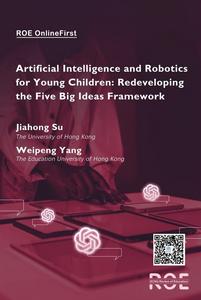

Artificial Intelligence (AI)
Source: vecstock/Freepik
The last 20 years has been transformed by the internet, mobile devices, and cloud computing, to name just a few technologies. Billions use web browsers, iPhones, and Google Drives every day in their personal and work lives. Now another new technology is being touted as the next big thing: artificial intelligence (AI).
In the first two months after the introduction of ChatGPT in late 2022, more than 100 million users signed up for the service. Since then, Microsoft, Google, and dozens of other companies have launched similar AI-powered products. The threats and opportunities presented by AI are being debated by individuals, businesses, educators, and governments alike.
To be effective as a leader and in a teamtoday, being smart, say, by having a high IQ, isn’t sufficient. Emotional intelligence and experiential intelligence are also important. Now, we’re also faced with the need to explore one’s facility with another form of intelligence as a success factor: artificial intelligence.
If you’re working in a team or organization, how can you best introduce and explore the promise and possibilities of AI?
Fear of New Technology
According to a report by the Pew Research Center, 72 percent of Americans expressed worry about a future in which robots and computers can perform human jobs. When changes are seen as potential threats, especially when the long-term implications are uncertain, people may feel anxiety and become resistant to trying something new.
What many people don’t realize, however, is that AI has been part of our lives for some time. From voice assistants like Alexa and Siri, to recommendation algorithms on YouTube and Netflix, natural language processing and machine learning has for a while shaped how we live, work, and interact with the world.
With the rise of ChatGPT and other AI platforms, an opportunity exists to consider how AI can be used to increase the effectiveness of individuals, teams, and organizations as a whole. But where do you start when anxiety around the technology itself may exist? How might you help quell the potential fear of the technology so you can support your team in new ways of working?
4 Actions to Build AI-Literate Teams
- Start with the basics. When introducing AI, it’s crucial to start with the basics. Explain AI in simple terms, such as “AI is technology that can help us achieve our goals and work more effectively as a team.” Share examples that everyone may be familiar with, like voice assistants such as Alexa or personalized recommendations from TikTok, Instagram, or YouTube. Sharing basic examples simplifies the topic.
- Relate AI to broader life and work. To further make AI relatable, highlight its presence in our everyday lives. Discuss how AI helps doctors diagnose diseases, self-driving cars navigate roads, or online shopping platforms suggest products. By connecting AI to familiar contexts, it becomes much easier to recognize its impact and relevance, fostering a broader appreciation of its role in the workplace and in products and services.
- Inspire curiosity. Encourage your team to explore AI through hands-on activities. Log in to ChatGPT or a similar platform and share how it works. Ask, “What question do you have about how something works that we can learn about together?” Or ask, “What issues are we facing right now that we need new ideas to help solve?” Coach your team members to ask the AI to give you insightful answers, including deeper-dive prompts that reveal additional insights and ideas. By painting a vivid picture of AI’s possibilities, we can ignite curiosity and encourage our teams to explore new solutions to existing or emerging problems.
- Reinforce ethics and personal responsibility. As AI becomes increasingly prevalent, ethical considerations become crucial. Discuss the importance of unbiased decision-making and responsible AI use. Discuss how “deep fakes” like AI-generated videos, photos, and audio recordings can cause harm and undermine trust. Engage in conversations about the impact of AI on individuals and society and encourage critical thinking around its ethical implications for your team, business, and industry.
In an era dominated by constant change, AI may become an integral and embedded part of our personal and work lives. Some may view AI as exciting. Others may see it as a threat. However you view it, AI is likely here to stay. As the technology increases in prevalence, the opportunity exists to equip teams with the knowledge, abilities, and ethical compass to use AI both effectively and responsibly.




